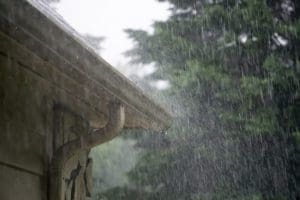 The stability of your home’s foundation is critical to the structural integrity of your home. Foundations rise, sink, and shift as the soil beneath them expands or contracts with the presence or absence of water, therefore controlling the water on your lot is by far the best way to ensure the safety and integrity of your foundation.
The stability of your home’s foundation is critical to the structural integrity of your home. Foundations rise, sink, and shift as the soil beneath them expands or contracts with the presence or absence of water, therefore controlling the water on your lot is by far the best way to ensure the safety and integrity of your foundation.
Here are six tips to prevent home foundation problems:
- Install Gutters and Downspouts. When it rains, it’s vital to have clean, clear gutters and downspouts to carry water away from your home’s foundation and avoid foundation issues. It is wise to clean your gutters every spring and at the end of autumn to make sure they are not harboring any debris that could cause clogging.
- Have correct sloping away from home so water doesn’t settle around the foundation. Proper grading of your lot and landscaping also play an important role in keeping moisture away from your foundation. You do not want rainwater or runoff from your roof to gather around your foundation, or under your house. For proper drainage, make sure that your yard slopes gently away from the house and drains near the fence line, not next to your foundation (or in the middle of your yard) if draining is necessary. Most experts agree that soil should slope one inch for every foot extending from the foundation for at least six feet.
- Plant small shrubbery and plants around your home. Planting flowers that don’t require a lot of water to flourish will help maintain a consistent moisture level without the soil becoming too saturated. Flowers and small shrubs are better than trees, as roots won’t affect the foundation, but can help keep soil stable and absorb excess water. Trees should be planted farther away from the house so as not to present a threat to your plumbing system from invading tree root systems.
- Routine watering of plants and lawn around your home. Watering twice a day will help maintain a consistent level of moisture and prevent severe soil expansion and contraction that can lead to a shifting foundation and cause settling issues. Adding a few inches of woodchips to your flower beds or garden will help to regulate both the moisture and the temperature of the soil that supports your foundation. Set a timer on your sprinkler system so that it waters every day at dusk and dawn for 30 minutes. It may be wise to add extra watering times during the dry months.
- Proper soil retention around the home. This will also aid in the retention of moisture and prevent dehydrated soil, which can shrink and cause your foundation to settle. Embed foundation up to 2 inches from top of a slab foundation. Make sure the soil next to your foundation is properly compacted to help direct any water flow away from the foundation. Loose soil will not aid in proper drainage but will only absorb moisture rather than directing it away from the foundation.
- Install drains where needed. If you do not have flowers planted near the foundation to help with moisture absorption, and/ or you notice low spots and pooling water after a heavy rain, you might consider adding a French drain to help move water away from your home and avoid foundation issues.
Why Us?
There are lots of foundation repair companies in Texas, but they are not all equal. At Advanced Foundation Repair, we understand volatile Texas weather and soil conditions and what they can do to the foundation of your home. We provide precise professional foundation inspections to pinpoint issues that affect your foundation before they become major problems. Advanced Pro-Lift Technology eliminates issues that might threaten the safety of your foundation and your home. Our transferable lifetime warranties, easy payments, and financing options offer you an affordable way to fix foundation problems. For the best in top quality foundation repair and outstanding customer service, call Advanced Foundation Repair in Dallas today.
